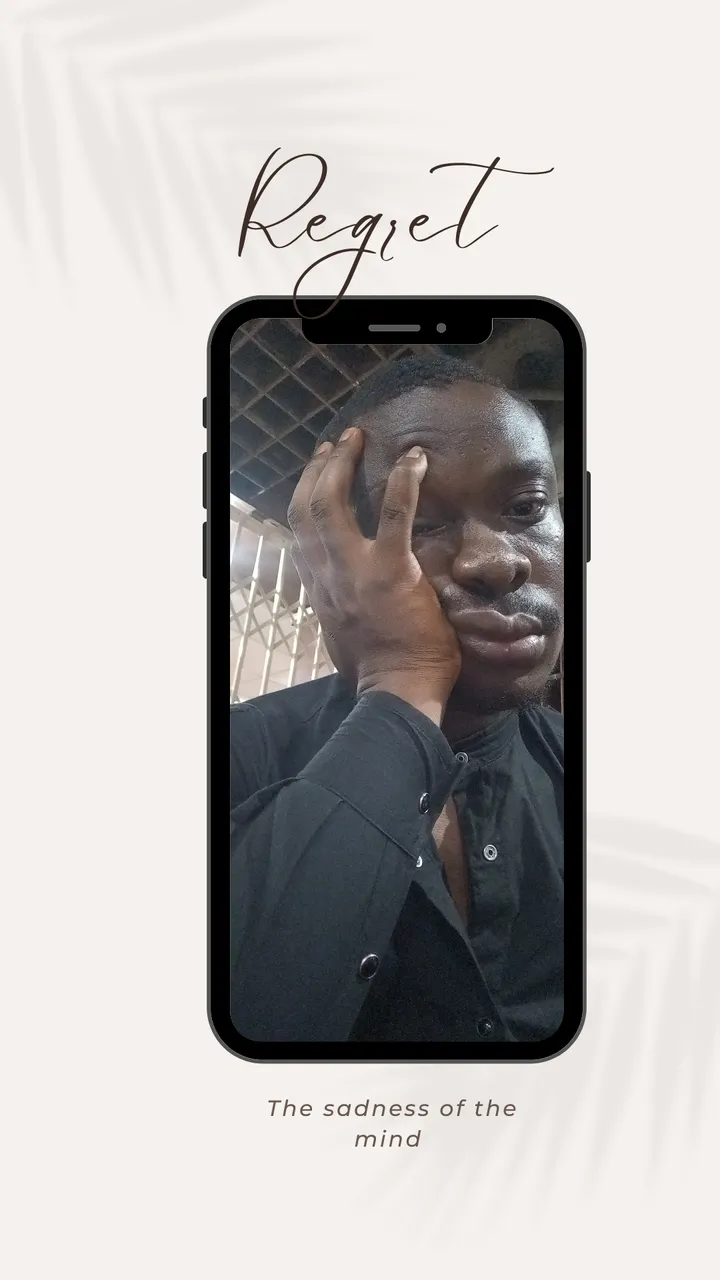Life is a process, and like people on a pilgrimage, we encounter the lows and highs it comes with. Choices and decisions are what personalize life's progress for every individual. Whether we are making decisions or not, we are always at the point of acting on a decision or choice that we have accepted. If we refuse to make a decision, we have decided to accept decisions made by others, and that makes it our choice. We live by the decisions and choices we have made.
Our decisions today are our past tomorrow. The choices we make today determine the options we have tomorrow. Many people have jeopardized their future because of the decisions and choices they make today. Our tomorrow’s past is our today’s decisions. Some parts of the past are so good that we wish they could be recreated, while others are so sad that we wish they never happened. Some people are strong enough to let go of the ugly past, others get stuck in it and life becomes more miserable than the past they "wished never happened". They spent all the good times they were supposed to recreate with regret.
Regret is an uninvited guest we all get to see knocking at our door. As far as life is tied to decisions, we will at some point wish we did something differently or we didn’t do it at all, and that is simply regret. Some experts believe it is unavoidable, while others believe it is possible to live without regret. I don't know how true these assertions are, but I know we all have something we wish we could have done better or avoided entirely.
Regret as a concept of life is not bad in its entirety. >According to Daniel Pink, a psychologist who authored the book "The Power of Regret," opined that regret can be healthy when properly harnessed. According to him, when regret is utilized well, it can guide, motivate, and inspire you to make better choices in the present and for the future. The only purpose regret ought to serve is to guide you in retracing your steps to a better option. Sadly, many have been caught and held bound in the web of regret so that they can’t see the light and beauty in trying again.
Regret reveals the emptiness, weakness, and inabilities of man without suggesting a way out. The suggestion is solely our responsibility. The earlier we dust our butt, take up our remaining self and chart a new path, the better for us, because the longer we dwell in regret, the emptier, weaker and vulnerable we become.
What does regret do to us?
1.Regret lives in the past, because everything we have regretted is something that lives in the past. None of them have ever seen the light of the future. Therefore, regret enslaves us to a failed past. It makes our lives look backward. No one dwells in regret, making progress for the future. No matter the wonders of the past, they can never be compared to what lies ahead of us. The future is believed to always be much brighter, glorious, and with better prospects than the past.
2.Regret is a negative energy and emotion; regrets corrupt beautiful memories. It ruins the joy of effort and energy invested in a thing or process. It kills enthusiasm. The aftereffect of this is that one will or might gradually slide into depression and sorrow, lack of trust and fault finding, poor stewardship, and poor leadership. These are not healthy for a progressive life.
3.Finally, regret leads to self-blame and esteem crisis. Regret does not come with praise, but rather blame for failing, blame for choosing wrongly, blame for being the wrong self for you. It is funny, but that is the extent to which regret can make life miserable for us if the effects are not detected and treated on time. When you start questioning your abilities negatively, you will soon stop believing in yourself. Regret will make you start comparing yourself with others and blaming yourself for the success they have attained. The adverse effects of this are that it will lead to personality crises, anxiety, fear, low self-esteem, worries, and self-blame.
There are many other effects of regret, but I will leave it at the three mentioned above in this piece. Therefore, regret can be a result of not courageously handling mistakes, failure, and any other ugly past. Regret is trapped in those unpleasant events. This has led to loss of identity, inferiority, aggression, addiction, depression, and, in the worst case, suicide. I have seen parents who got stuck in their past and attempted to raise their offspring from that prison. I have seen people pitch their pillars in their past in order to build their present relationship. I have come close to people who think it is better not to live than to live with "the thorn" in their flesh.
Before I summarize, we must understand that all failures are not inabilities. Some are outcomes that can be tested again to yield a better result; they can be called mistakes.
Mistakes and Regret
It is also important that we separate mistakes from regret. A mistake is an unplanned failure "in my own terms". is an unwanted outcome of a positive effort. If it is not an effort towards something better, it is not a mistake. Most things that cause us to regret are good efforts that didn’t turn out the way we planned them. We forget that it doesn’t usually turn out the way we planned.
The zeal to give it a trial is enough encouragement that you can use to trash every trace of regret. Inform that thought that you are bouncing back. You are only making a mistake because you are making an effort. Give it another trial.
It is good to point out that not every failure is a mistake. For instance, it is not a mistake to get drunk, it is not a mistake to have a baby except when raped, it is not a mistake that you failed in an intentionally unprepared effort, etc. The point is, not all failures are mistakes, and not all mistakes are actually failures. In either way, it depends on your input and intent. However, the case might be, the good news is that it's not beyond repair until it's actually beyond repair.
So, how do we recreate?
1.Forgiveness is the first and most important thing to do. Forgive yourself for failing, forgive yourself for the wrong decision, and forgive the systems that didn’t favor you. Also forgive that process that didn’t favor your plans. Just forgive and push on. On the other hand, forgive those that might have contributed to your failure. Let them go from your heart.
2.Accept responsibility: accept responsibility for your error. Accept that they are mistakes because most of your failures are done out of good intentions. Stop blaming yourself, the system, the process, the people, and everything blamable. Positively take up the responsibility.
3.Trace the failure: this is not the act of pitching your tent in fault finding, but rather of evaluating and re-evaluating yourself, your plans, decisions, choices, circle, and strategies. Etc. Trace what you didn’t do right, where you got it wrong, and how it went wrong. The unveiling might be so satisfying and encouraging when done with the aim of making it right.
4.Take action: an idle man, they say, is a devil's workshop. Once you have traced the problem, take action. Do it again in another way. Employ the right facilities and resources. The more we get busy doing what is right, the more we keep defeating what is wrong.
5.Keep renewing your mind: don’t allow your mind to get stuck in negative vibes. Speak positively to yourself. Use accurate affirmative words to describe yourself. I kicked down the door to discouragement, fear, and low self-esteem. Build confidence, because that is the core value that determines competence. Be generous in appreciating and commending yourself.
6.Finally, for this content, seek out mentorship: we all need someone who has better and tested experience to learn from. Borrow from people like this. Take a seat beneath their wealth of experience. Let their shoulders give you comfort.
Summary
We must get to a point where we will break the shells of the past and reconnect to our untapped opportunities and treasures. We mustn’t let what we can overcome rule over us. Regret can be healthy, but dangerous when not properly managed. Well, when Mr. Uninvited (regret) keeps knocking, it is your choice to open or not. We can live better no matter the past. Let's retrace and retell our stories.
Fragrance


